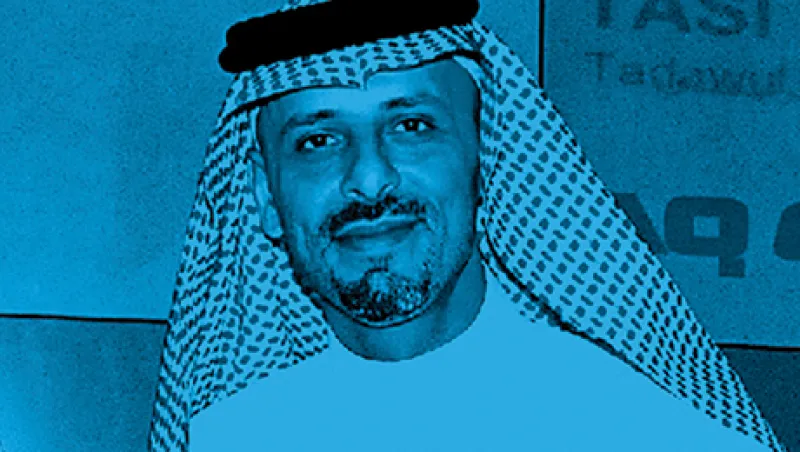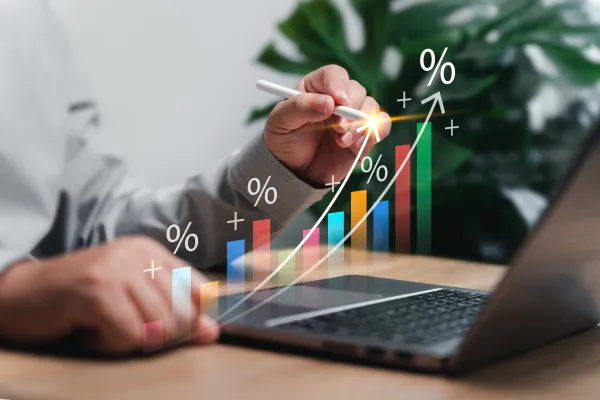With oil prices tanking after producers failed to agree on production cuts in early December, investors are not exactly clamoring to invest in Saudi Arabia. Yet it’s precisely to stimulate investment in the nonoil economy that Riyadh in June opened the Saudi Stock Exchange to direct investment by foreigners. Adel al-Ghamdi, CEO of the Tadawul, as the exchange is known locally, came to New York recently to tout the opportunities for investors and discuss the improvements he hopes foreigners will bring to the country’s opaque, retail-dominated market.
1. How significant is this opening of the Saudi market?
al-Ghamdi: Quite significant, actually. We started our liberalization efforts back in 2006, when resident foreign investors were given direct access to the stock market. In 2008 the Saudi equity swap framework was introduced by the Capital Market Authority, which gave nonresident investors single-stock access through the participatory-note structure.
The introduction of the qualified foreign investor (QFI) framework is a continuing evolution of our liberalization efforts, and certainly not the last. Our objectives are to honor our national agenda, which is centered on fostering economic stability and diversity, and to enhance market sophistication.
2. What impact would you hope to see from foreign investors?
Long-term institutional investors take an active role in shaping the direction of the companies they invest in. These people are more involved in the selection of board members, in attending EGMs and AGMs and ensuring that their votes are cast at every opportunity. The exchange facilitates shareholder activism by having an electronic voting platform, which means you can vote in these EGMs remotely. Only when shareholders start actively participating in the decision-making process do companies start to govern themselves in a better way, ensuring that they have the right strategy for growth and so forth. Our objective is to converge on global best practices in investor relations, corporate governance and analyst research.
3. How much do you expect foreign investment to increase as a result of the QFI program?
Non-Saudi investors currently own around 7.7 percent of our market. Strategic foreign investors own 3.6 percent, and GCC [Gulf Cooperation Council] investors own about 2.4 percent. Nonresident portfolio investors are very small: The P-note structure represents 1.08 percent of our market, and QFI is 0.03 percent.
It’s early days yet, but we’ve had nine qualified foreign investors registered now and two QFI clients. These guys have total assets under management of around $5.65 trillion. I would not call that a failure. I think quality is as important as quantity. And I believe quantity will come as we go forward. If nonresident foreign investors should increase their stake to 5 percent over the course of the year, I think that’s good progress. If we were to be classified in the emerging-markets index by MSCI, that would generate significant flows.
4. Are you concerned that investors will regard the Tadawul as just a proxy for crude oil?
Saudi Arabia is and will continue to be a major artery supplying the necessary lifeblood to the world’s economies. But there’s a huge drive to diversify the economy. Five years ago nonoil activity represented around 35 percent of GDP. We’re currently at around 40 percent, and there’s an objective in the government’s tenth development plan to increase that to 66 percent by 2020.
There are various steps being taken to do that, including support for small and medium-size enterprises. The Saudi Stock Exchange has a role to play. We are studying the opening of a venture market, which will be restricted to sophisticated and institutional investors. And we’re looking to sponsor a capital markets incubator, along with the Ministry of Commerce and private equity firms, whereby SMEs and start-ups can come to the incubator, get educated and be able to list on the venture market.
5. Dubai is the Gulf’s international financial center. Can Riyadh develop a financial ecosystem of fund managers, analysts and other talent?
Absolutely. That’s part of our evolution. The global community is welcome. We invite our international stakeholders to become co-authors in writing this new chapter of our nation. Our financial industry is dominated by expats. We want to ensure that they help us to move forward, that there’s a knowledge transfer to our Saudi citizens.
Follow Tom Buerkle on Twitter at @tombuerkle.
Get more on emerging markets .






